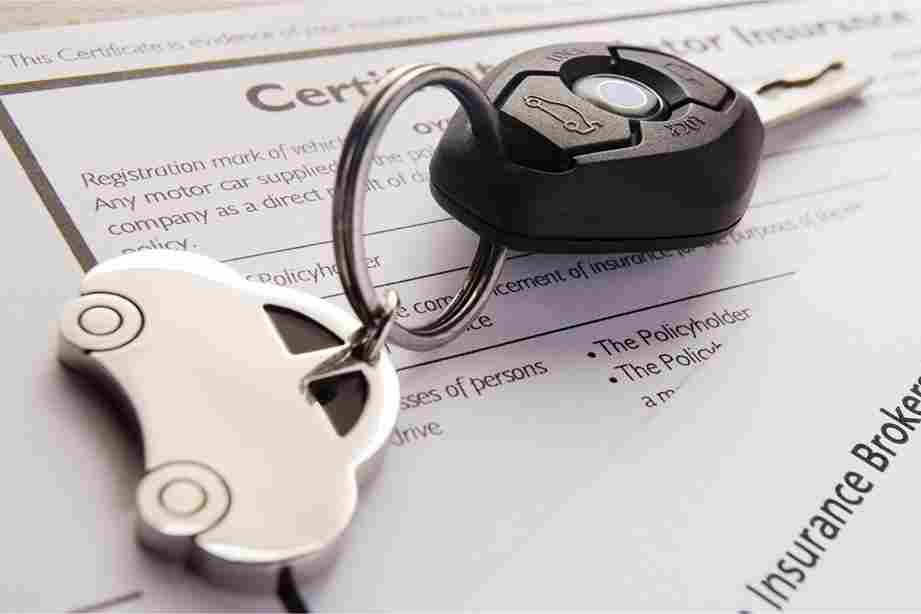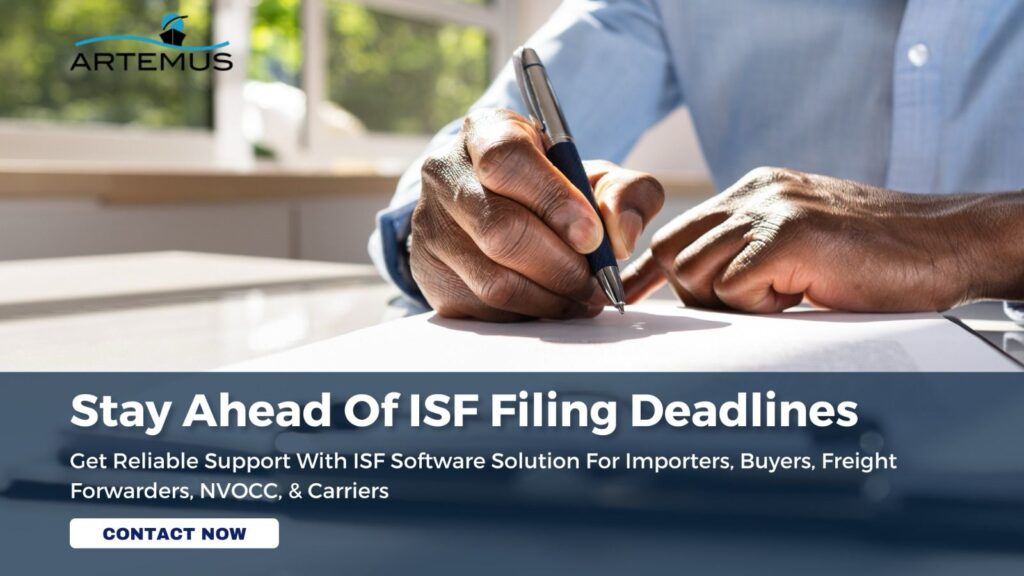
What Is Inbound Logistics & Outbound Logistics? A 2025 Guide
In the dynamic world of supply chain management, understanding the nuances of inbound and outbound logistics is crucial for operational

When buying, selling, or exporting vehicles, having the right paperwork is essential for legal compliance and smooth transactions. One important document in this process is the Certificate of Origin for a vehicle. But what exactly is this certificate, and why is it important?
A Certificate of Origin (CO) for a vehicle is an official document that provides key information about the vehicle, including its origin, manufacturer, and unique identification details. This certificate, issued by the vehicle’s manufacturer, proves the vehicle’s authenticity and origin. It is crucial for vehicle registration, titling, and customs clearance during international shipping.
Moreover, Artemus Transportation Solutions provides advanced ISF, AMS, & Customs Broker software solutions to streamline and secure shipments entering the USA, ensuring compliance with customs regulations and enhancing supply chain efficiency.
Table Of Contents
A Certificate of Origin for a vehicle is an essential document that establishes the birthplace and ownership lineage of a vehicle. Issued by the manufacturer, it contains crucial details such as the vehicle’s make, model, year of manufacture, Vehicle Identification Number (VIN), and the manufacturer’s name and address.
This document is generally needed for vehicle registration with a state’s Department of Motor Vehicles (DMV) and to prove ownership when transferring the vehicle to a new owner.
In addition to its role in vehicle registration and ownership transfer, a Certificate of Origin is also important for international trade. When a vehicle is exported or imported, the Certificate of Origin helps customs authorities determine the origin of the vehicle and assess any applicable duties or tariffs.
It serves as a key piece of evidence that the vehicle complies with the trade agreements and regulations of the destination country.
Related: Certificate Of Conformance (CoC): What Is It & Its Types
When importing or exporting vehicles, having the right paperwork is crucial. One of the most important documents in this process is the Certificate of Origin (CO).
But why is this certificate so essential?
A Certificate of Origin proves that a vehicle is genuine. It provides important details such as the manufacturer and the country where the vehicle was made. This helps verify that the vehicle is not fake and meets the standards required by the importing country.
Customs officials use the Certificate of Origin to check if the vehicle meets the import regulations of their country. Without this certificate, your vehicle might be delayed at customs or even refused entry. This can cause big problems and extra costs.
The Certificate of Origin helps calculate the correct taxes and duties on the vehicle. Some countries have trade agreements that lower tariffs on vehicles from certain places. The Certificate of Origin proves the vehicle qualifies for these lower rates, saving you money.
Having a Certificate of Origin ensures you follow all legal requirements. This document is often needed to register and title the vehicle in the importing country. Without it, you could face legal issues or fines.
Related: What Is Bill Of Lading? A Comprehensive Overview
Understanding Certificates of Origin is crucial in vehicle transactions for legal compliance and smooth import/export processes.
Here’s a detailed look at the three main types:
Issued by the vehicle’s manufacturer, the MSO provides comprehensive details including origin, make, model, and VIN. It’s essential for initial registration and titling of new vehicles, verifying authenticity, and meeting regulatory requirements.
Similar to the MSO, the Manufacturer’s Certificate of Origin certifies the vehicle’s origin and essential details. Both are required for initial registration and title issuance, ensuring compliance with safety and environmental standards.
Specifically for vehicles imported from other countries, this certificate proves its origin and aids in customs clearance. It verifies compliance with import regulations and assists in accurate tariff and duty calculations.
Related: ISF Form (Import Security Filling): Elements & Top Practices
Obtaining a Certificate of Origin ensures compliance with import regulations and facilitates the registration process, whether for new or used vehicles, directly from manufacturers, or through authorized dealerships.
Related: Late ISF Filing: What To Do If Missed The Deadline?
Transferring a Certificate of Origin (CO) for a vehicle involves several key steps, typically managed by the dealership where the vehicle was purchased. Here’s a concise guide on how the process works:
When a new vehicle is purchased, the dealership typically handles the CO/MSO transfer. Here are the key responsibilities of the dealership in this process:
Upon receiving the CO/MSO and other required documents from the dealership, the DMV processes the application.
Here’s what happens at the DMV:
While the buyer usually does not handle the CO/MSO directly, being informed about the process is beneficial:
Related: 10 International Shipping Documents To Must Have In 2024
Issue: Losing or misplacing the Certificate of Origin (COO) for your vehicle can delay registration and compliance processes.
Issue: Errors such as incorrect vehicle information or misspelled names on the COO can lead to complications during registration and compliance checks.
Solution:
Related: ISF 5 Filing Requirements: Data Elements & Audit Process
When it comes to international trade and vehicle ownership, understanding the nuances between a Certificate of Origin (COO) and a Title is crucial. Both documents play vital roles but serve different purposes.
Here are five key differences between a Certificate of Origin and a Title:
Certificate Of Origin (COO): This document verifies the country in which a product was manufactured. It is essential for determining the eligibility of the product for import tariff concessions and trade agreements.
Title: A title serves as proof of ownership of a vehicle. It indicates who legally owns the vehicle and includes essential details such as the Vehicle Identification Number (VIN) and owner’s information.
Certificate Of Origin (COO): Typically issued by the manufacturer or a chamber of commerce in the country of origin. It may also need certification by a customs authority or consulate.
Title: Issued by a government agency, usually the Department of Motor Vehicles (DMV) or equivalent, within the jurisdiction where the vehicle is registered.
Certificate Of Origin (COO): Contains details about the product, including the manufacturer’s name, product description, and the country of origin. It might also include shipment details.
Title: Contains information about the vehicle such as make, model, year, VIN, and the owner’s details. It also notes any liens on the vehicle.
Certificate Of Origin (COO): Used primarily in international trade to determine tariffs, comply with trade agreements and ensure correct customs documentation.
Title: Used in the buying and selling of vehicles to transfer ownership from the seller to the buyer. It is a crucial document for registration and legal ownership.
Certificate Of Origin (COO): It confirms the product’s origin, which can affect tariffs and import duties. Incorrect information can lead to penalties, delays, or denial of entry at customs.
Title: Establishes legal ownership and is required to prove who is responsible for the vehicle. A clear title is necessary to transfer ownership and register the vehicle in a new owner’s name.
Related: What Is NVOCC? Meaning & Details You Need To Know

Artemus Transportation Solutions provides cutting-edge software designed to streamline and ensure compliance with U.S. import regulations. Specializing in Importer Security Filing (ISF) and Automated Manifest System (AMS) requirements, Artemus offers comprehensive solutions that help businesses manage their shipping documentation efficiently.
The software automates key processes, reduces the risk of errors, and ensures timely submissions to U.S. Customs and Border Protection (CBP), thereby avoiding costly penalties and delays.
In addition to ISF and AMS capabilities, Artemus offers specialized Customs Broker Software designed to streamline ISF and AMS filings. This advanced software ensures compliance with U.S. Customs and Border Protection (CBP) regulations, automating critical processes for timely and accurate submissions.
Related: ISF Declaration: Meaning, Purpose, Timeline, & Process
1. What Is The Purpose Of A Certificate Of Origin?
The purpose of a Certificate of Origin is to verify the vehicle’s origin and authenticity.
2. Who Gives Certificate Of Origin?
The vehicle’s manufacturer or the relevant authority in the exporting country issues the Certificate of Origin.
3. What Is The Validity Of Certificate of Origin?
The Certificate of Origin is valid indefinitely, but its relevance is primarily during the vehicle’s initial registration and import/export processes.

Understanding the importance and legal significance of a Certificate of Origin is essential for individuals and businesses involved in the automotive industry. By complying with the requirements and obtaining the necessary Certificates of Origin, you can ensure smooth operations, legal compliance, and the authenticity of the vehicles being imported/exported or registered.
Related: Custom Clearance Documents Required In USA, India, & Japan

In the dynamic world of supply chain management, understanding the nuances of inbound and outbound logistics is crucial for operational

In today’s interconnected world, businesses rely heavily on global trade to expand their markets, access new resources, and drive growth.

Importing goods for resale in the USA presents a lucrative business opportunity, but navigating the complexities of U.S. customs regulations,
Get In Touch
Artemus’ Software Solutions for ISF, AMS, Japan AFR, eManifest Canada, & Panama B2B filings.